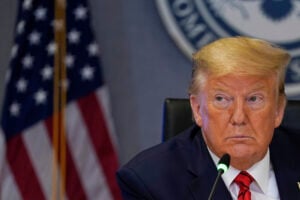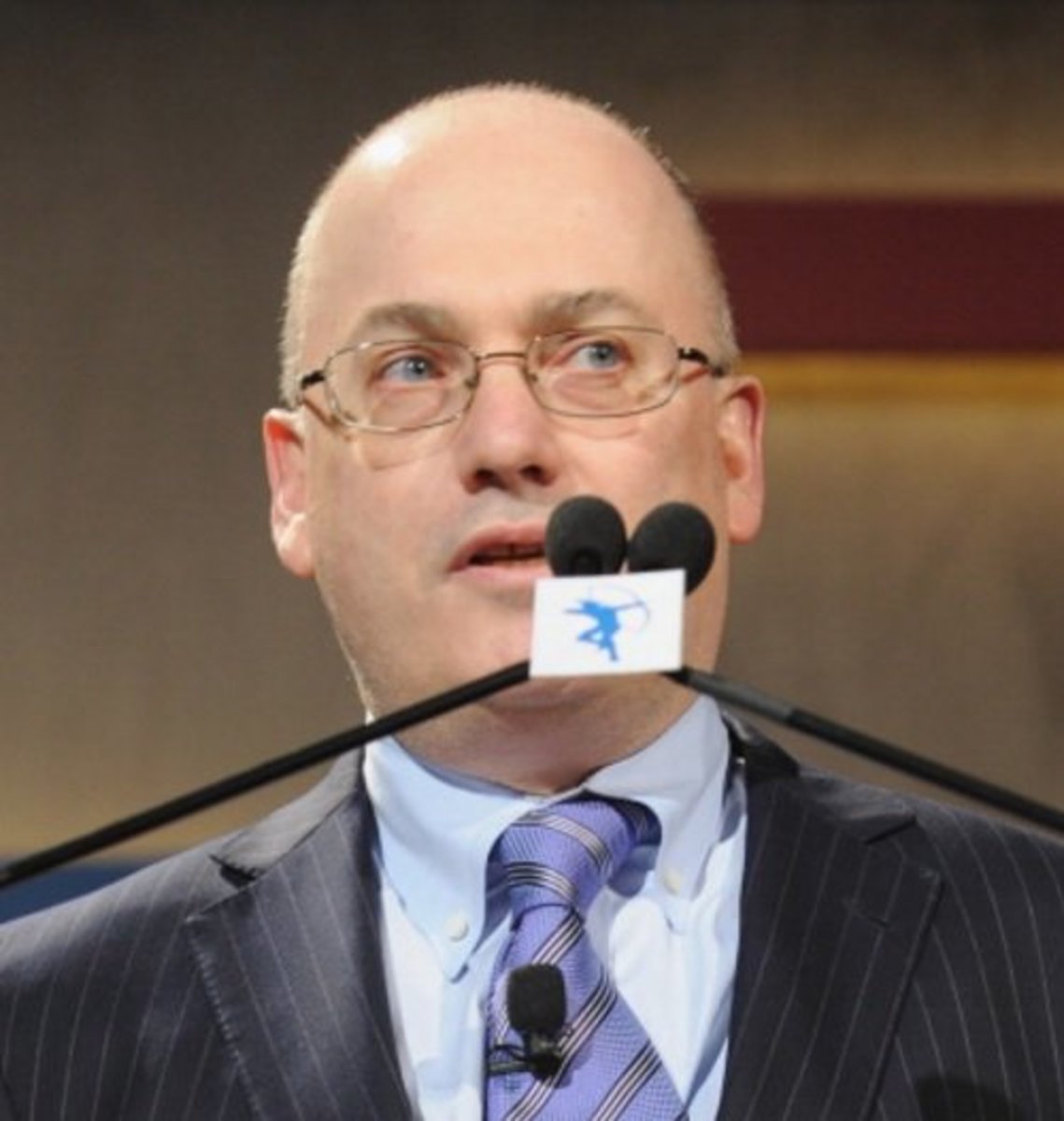It was an experience, Gillian Power said, that taught her that one can simultaneously be at the most vulnerable point in one’s life and also the most empowered.
After struggling privately for decades with her assigned gender, Power, chief information officer at the law firm Lathrop GPM in Kansas City, finally came out to herself and her family as transgender, and then made the difficult decision to also come out to her colleagues. It took her nine months to compose the letter she planned to send them, and when she finally worked up the courage to take it to work, she stashed it in a desk drawer.
But eventually she did send it — first to her supervisor and then to firm leadership, all of whom pledged to support her however they could, and then to the rest of the firm’s employees, who within an hour flooded her inbox with more than 100 messages of support.
For Kim Barrett, legal professional and paralegal administrator at Latham & Watkins in Los Angeles, her story of vulnerability and empowerment was much different. Born to a white mother and a black father, her Caucasian appearance caused many of her colleagues to conclude she was white. But when, in one of her early jobs as a paralegal in a corporate legal department, she brought her family to a company outing, the change among some coworkers was palpable.
It crystallized for her one day afterwards when she asked a lawyer if the company would be open on Martin Luther King Day. “I don’t know how you people celebrate,” he replied, “but the company is open.”
“It took everything I had not to lash out at him,” Barrett recalled. “But I needed the job.”
Barrett went on to chart a successful career, eventually earning a master’s degree in paralegal studies while working full time and raising a family. Having worked at multiple firms and corporations over the years since that incident, she never again experienced racism, at least not overtly.
But if she had the confidence she has now when that incident occurred so early in her career, she would have responded different and confronted the lawyer. And she hopes that others who witness such conduct would say something too.
Talking About Race And Gender
Power and Barrett shared their stories as speakers on a July 22 panel, “Talking Successfully About Race, Politics & Gender at Work,” presented by i.WILL — Inspiring Women Igniting Leadership and Learning — and its founder Andrea Markstrom, CIO at Taft in Minneapolis, and moderated by Anna McGrane, cofounder and COO of PacerPro.
The focus of the program was on exploring how to have meaningful conversations in the workplace about issues of diversity, race, gender, and inclusivity.
For Power, her experience of those issues comes not only as someone who grew up struggling with her assigned gender, but also as someone who grew up as a privileged white male in Apartheid-era South Africa.
So much of what she sees happening now in the United States around race mirrors the awakening that happened to many white people in South Africa when she was younger, where, she says, many white people had been completely shielded from the horrors of the Apartheid system.
That sense of while male privilege also accrued to her fear and confusion about her gender identity. “I was afforded many opportunities while presenting as a male person and realized how much privilege accrues to that.”
Power eventually moved to London, where in 2001 she obtained her first law firm job at Dentons providing technical support. In 2003, after meeting her eventual wife while on a business trip to the United States, she moved to this country and in 2008 joined Lathrop.
But even after coming out to her wife in 2013, she remained “petrified” of coming out to her coworkers. There was no precedent for her to follow, she said, as no one on the administrative side of a major law firm had openly transitioned before. And she was inhibited both by a sense of shame and by the fear of possibly losing her job and her professional relationships.
“Despite that, I was propelled forward,” she said. “The need to express who you are is one of the strongest forces within us — we can’t hold it back.”
When she did finally come out, the outpouring of support from her colleagues was overwhelming. And it provided lessons that informed not just her situation, but those of so many right now.
The conversations that we are now having in this country and globally are about vulnerability, Power said, about people saying, “I am suffering.” If we engage in those conversations with strength, with dignity, and with resoluteness, that is what produces change, “because it changes the heart of people.”
For leaders at law firms and other organizations, the lesson is to recognize that we have all these different viewpoints and to be able to find “the golden mean” or the path through these views.
“The role of leadership is to be able to do that — to have the centeredness and the awareness to hold and value all those perspectives,” Power said.
‘A Lot Of People Are Not OK’
Barrett is a former Marine who worked her way up through the ranks at Latham after earning an associate’s degree in paralegal studies in 1997 and landing a job there as a part-time night receptionist. From there, she moved into a secretarial role and then became an entry-level paralegal.
While raising two children and working full time, she earned a bachelor’s degree in justice studies and then a master’s degree in paralegal studies. In 2017, the firm promoted her into her current role, where she oversees everyone at the firm who falls under a broad umbrella of legal paraprofessionals.
As a woman of mixed race, she has always strived for diversity among her professional teams to include an array of different perspectives.
She is also aware that the events of the past few months, especially since the “infuriating and heartbreaking” murder of George Floyd, have brought to life for some what has been known for years to those in communities of color.
“Others who are not of color were able to go about in their own bubble because it didn’t affect them personally,” she said. “But now it does.”
She is also a mother who worries about her own two sons. “People of color have experienced unfair treatment by the criminal justice system since forever. This is not a new phenomenon.”
These events outside the workplace affect people in ways that they carry into the workplace, Barrett believes. “A lot of people are not OK mentally and emotionally because of things going on outside the office,” she said.
Her firm has responded by trying to give employees a safe space to share their stories and feelings, as well as to share if they have experienced racism of any kind at work. The firm scheduled an online open forum that so many people signed up for that a second one was required.
The firm has also created a Black Lives Matter group and has other programs to ensure that black culture is celebrated within the firm.
As for how to have conversations with employees around these issues, Barrett said, “You need to be comfortable with being uncomfortable.”
She cited the book Crucial Conversations, which she said has been useful in teaching her critical skills. When emotions are high, it is hard to hear each other, she said, and this book gives guidance on how to talk to each other and to communicate with honesty.
No One Said This Would Be Easy
Near the end of the program, moderator McGrane asked Barrett about that incident early in her career when the lawyer revealed his blatant racism. Had there been another person the room, what would Barrett have wanted that person to do?
“Call it out,” Barrett replied. “We have to call them out. That can be uncomfortable and scary — and it needs to be done.”
As for Power, her experiences have shown her that “every human being inherently wants to express themselves in a dignified manner, to express who they are.” The role of managers and leaders, she believes, is to figure out how they can remove obstacles to that expression.
“That’s not easy in business,” Power said. “No one said this would be easy. But the investment results are so rich.”
Robert Ambrogi is a Massachusetts lawyer and journalist who has been covering legal technology and the web for more than 20 years, primarily through his blog LawSites.com. Former editor-in-chief of several legal newspapers, he is a fellow of the College of Law Practice Management and an inaugural Fastcase 50 honoree. He can be reached by email at ambrogi@gmail.com, and you can follow him on Twitter (@BobAmbrogi).
is a Massachusetts lawyer and journalist who has been covering legal technology and the web for more than 20 years, primarily through his blog LawSites.com. Former editor-in-chief of several legal newspapers, he is a fellow of the College of Law Practice Management and an inaugural Fastcase 50 honoree. He can be reached by email at ambrogi@gmail.com, and you can follow him on Twitter (@BobAmbrogi).
 Staci Zaretsky is a senior editor at Above the Law, where she’s worked since 2011. She’d love to hear from you, so please feel free to email her with any tips, questions, comments, or critiques. You can follow her on Twitter or connect with her on LinkedIn.
Staci Zaretsky is a senior editor at Above the Law, where she’s worked since 2011. She’d love to hear from you, so please feel free to email her with any tips, questions, comments, or critiques. You can follow her on Twitter or connect with her on LinkedIn.








 Jordan Rothman is a partner of
Jordan Rothman is a partner of 






 Peter S. Garnett is an attorney at Balestriere Fariello who represents clients in trials, arbitrations, and appeals. He focuses his practice on complex commercial litigation and contract disputes from pre-filing investigations to trial and appeals. You can reach Peter at peter.s.garnett@balestrierefariello.com.
Peter S. Garnett is an attorney at Balestriere Fariello who represents clients in trials, arbitrations, and appeals. He focuses his practice on complex commercial litigation and contract disputes from pre-filing investigations to trial and appeals. You can reach Peter at peter.s.garnett@balestrierefariello.com.